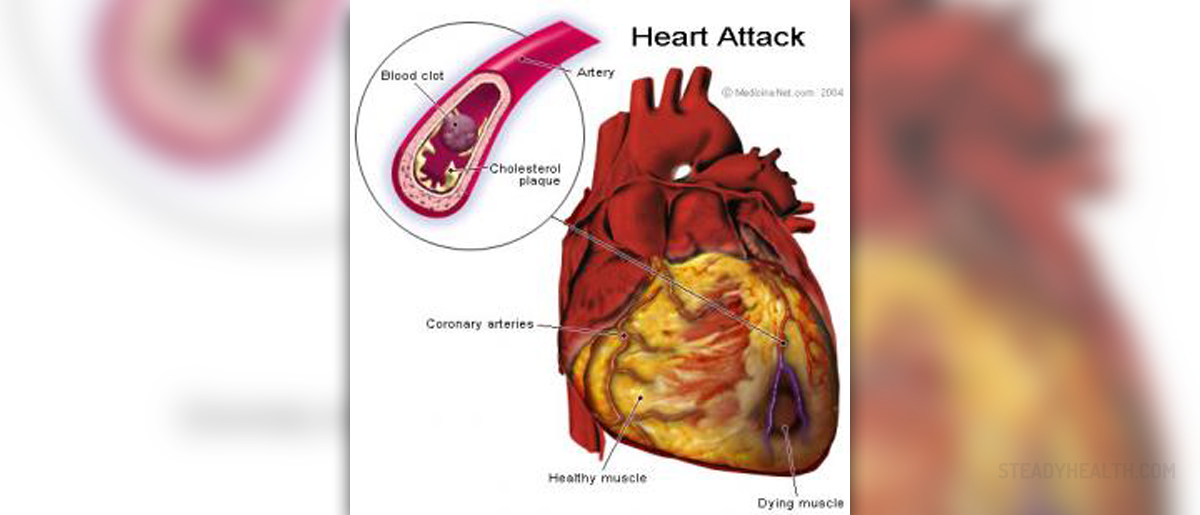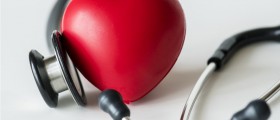
A heart attack, or myocardial infarction, occurs when a blood clot in the coronary artery interrupts the blood supply to the heart and causes oxygen shortage. Heart cells become damaged from this lack of oxygen and they begin to decay. The coronary artery may become narrowed from the buildup of lipids and white blood cells in the wall of an artery. A heart attack is a gradual process that usually lasts for a couple of hours. Damage to the heart, caused from the lack of oxygen, can be prevented if blood flow is restored.Symptoms
Symptoms of a heart attack appear gradually over several minutes. In some rare cases, heart attacks may result in an instant heart failure. The most common symptom is a chest pain - pressure, tightness and squeezing, caused by the lack of oxygen. The pain expands to the left arm and may even spread to the jaw, neck, and right arm.
Damage to the heart often causes ventricular failure that results in a shortness of breath. Other signs include excessive sweating, weakness, nausea, vomiting and an abnormal heartbeat.
CausesArterial plaque formed by the buildup of cholesterol, may rupture and form a blood clot on the side of the rupture. If the clot is large enough, it may block blood flow. A condition in which an artery wall thickness as the result of a plaque formation is known as atherosclerosis.
In some rare cases, a heart attack may result from a spasm of a coronary artery. This suspends the blood flow to the heart muscle. Cocaine, and other serious drugs, may cause this kind of spasm.
Risk factorsThere are certain factors to eliminate in order to reduce chances of having a heart attack.
Age - older people are more likely to suffer a heart attack. It is more common in men who are 45 or older, and women who are 55 or older.Tobacco - increases risk by 200 percent after several years of heavy smoking. Even long-term exposure to secondhand smoke can do similar damage.Diabetes - a condition in which a patient has high blood sugar levels because of the inability of the body to produce insulin properly or to respond to it in a proper way.Hypertension - high blood pressure, can damage arteries. High blood pressure may be inherited, but the main reason of hypertension is obesity and a diet too high in salt.High triglyceride levels - high blood cholesterol, where the LDL:HDL (low-density lipoprotein : high-density lipoprotein) ratio greater than 3:1. LDL, also known as "bad cholesterol" is undesirable and likely to narrow arteries. HDL, also known as "good cholesterol" seem to protect against cardiovascular diseases because of its ability to remove cholesterol within arteries and transport it back to the liver.Family history - a genetic condition may increase undesired cholesterol levels as well as hypertension.Obesity - a body mass index of more than 30 kg/m²Inactive lifestyle - regular exercise may contribute to reducing blood cholesterol levels, obesity and lowering a blood pressure.Stress - often increases blood pressure and causes excessive smoking and eating as a result of nervous tension.Illegal drugs - cocaine or amphetamines can cause a heart spasm.

















Your thoughts on this
Loading...